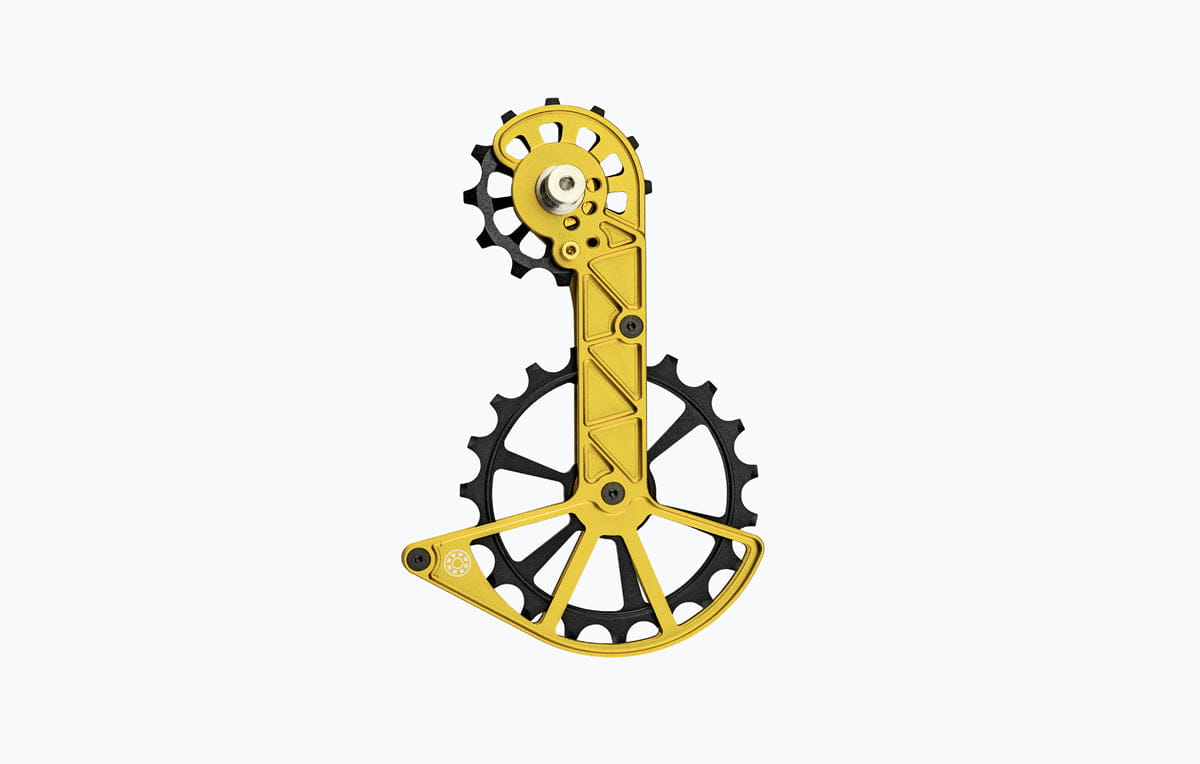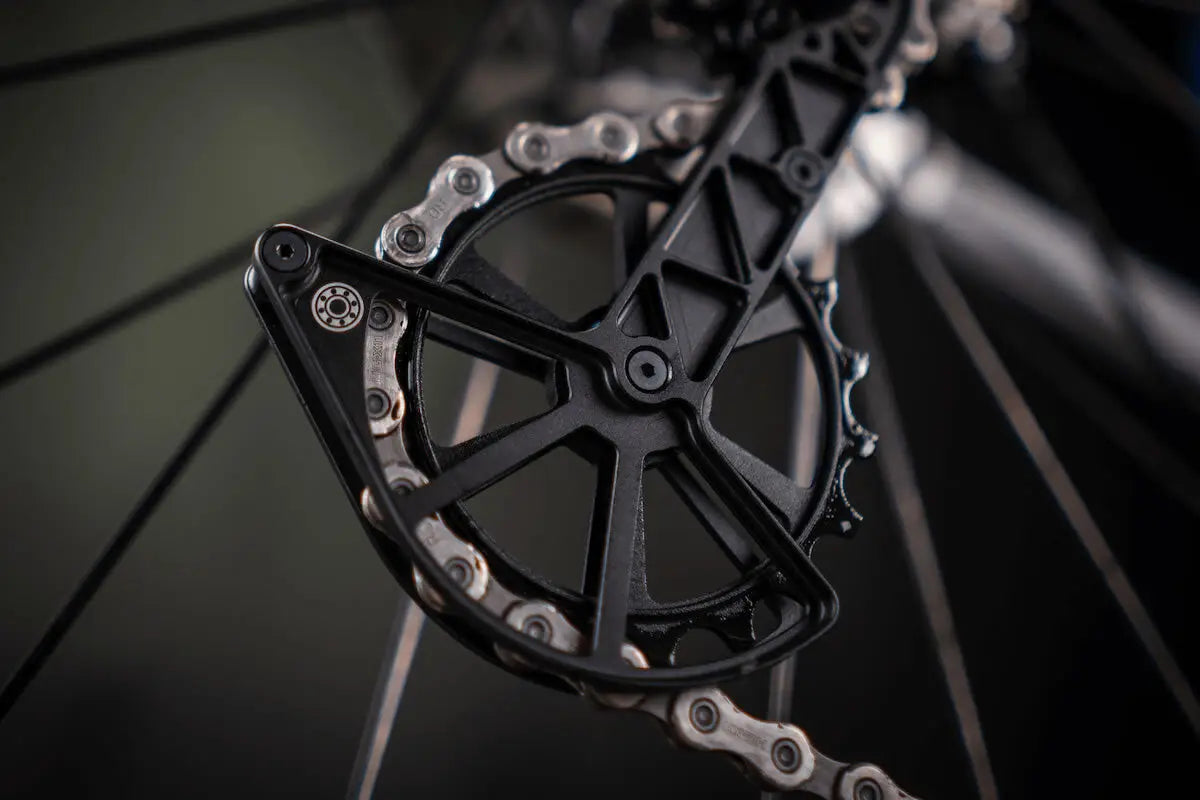Unlike our competitors, we only ship everyday racing products
Shortly after we started sending out the first Kolossos oversized derailleur cage samples, we received feedback from a few riders that the wheels 'don't spin as nice' as the other brand. We have heard the same comment about our pulleys in the past.
Time to deep dive into the world of grease, oil and prepping products for the showroom floor!
Running Dry Bearings
The natural friction in any high quality bearing is close to zero: run a dry bearing with grade 3 ceramic balls on polished races without load and it is going to spin amazing when you take it out of the box.
The problem with running a dry bearing is that the life span is short: heat build-up and in the case of bicycles, corrosion from water will prematurely wear out your bearings.

Lube it or Lose It
Bearing lubrication is needed for two reasons: (1) it keeps the steel races from rusting and (2) on a microscopic level it smooths out the metal surface.
Zoom in close enough on the best polished steel and it will look like a moon surface. Oil or grease will fill in the gaps so the balls have smoother surface to roll on.
Lubrication in bearings comes in many forms from super-thin oils to tacky grease. As a rule of thumb, low viscosity fluids have lower friction and are less durable. High viscosity greases are more durable at the expense of higher friction.
Unboxing Your Ceramic Bearings
This is exactly where we find the explanation for the out of the box free spin. I have seen most competitor products shipped with bone dry bearings (remember wear and corrosion, these products are not suitable for outdoor use yet).
Typically you will find a small bottle of oil in the packaging to lube your own bearings. As soon as you add this oil to the bearings, the free spin reduces.
Using a super-thin lubricant also requires you to often clean and lube your bearings, or should I say your personal mechanic. No privateer does this every 200 miles or so, this is elite level athlete territory.

Kogel's Take on Out-of-the-Box Lubricity
Kogel's philosophy is "Everyday Racing Products". This means getting as close to world-championship winning friction levels as we can, but without the need for the world-champion athlete's personal mechanic. Use the same setup for racing and training.
For this reason we use low friction grease in our bearings. They look slower than the competition on the showroom floor, but after you put a few hundred miles on the parts, the grease is redistributed: a thin film remains on the balls and races. Low friction AND durability: Everyday Racing!
Best of Both Worlds
The beauty of shipping lubricated bearings is: if you want the lowest friction for your 70.3 world champs race, you can flush out the bearings and use a thin oil for race day. After race day, clean again and use Low Friction Grease for your recovery rides and training days.
Have a look at below video, which shows the different bearing setups and how they affect free spin: dry, racing oil, grease and grease after break in.
Notes with video:
See the bearings spin freely for about 30 seconds in this video. As soon as a light oil is added, the free spin reduces to 8 seconds. The grease spin is unimpressive, but almost doubles after 100km of riding. This will keep improving as you put more miles on your Kolossos cage.
*disclaimer: for the engineers about to comment that a bearing under load behaves completely different from a bearing without load: you are 100% right. Free spin tests do not tell the full story. However, the load on derailleur pulleys is very small, mostly caused by the chain and spring tension in the rear derailleur. Spin tests are fun and a good method to benchmark performance for people that do not own a hyper-precise friction lab.

